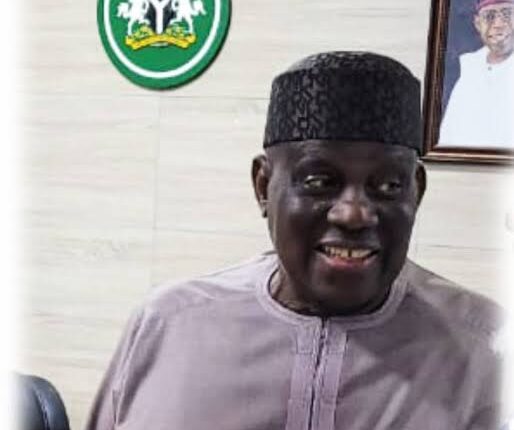General Onoja Urges Leaders to Drive Nigeria’s Transformation Through Vision and Values
Former Military Administrator of Katsina and Plateau States, Major General Lawrence Onoja (Rtd), has called for a new paradigm of strategic leadership in Nigeria anchored on vision, values, and ethical governance to drive genuine national transformation and nation-building.
Delivering a lecture titled “Strategic Leadership and Nation Building: Driving Transformation through Vision and Values” at the University of Abuja’s Leadership Induction Programme on November 6, 2025, General Onoja emphasized that Nigeria’s persistent governance and development challenges stem not from a lack of ideas but from a failure of leadership ethics and continuity of vision.
“Our nation’s greatest challenge is not the absence of vision, but the failure to translate vision into value-driven action and institutional practice,” he declared.
The retired general, who holds a PhD and is a member of the National Institute (mni), noted that despite Nigeria’s numerous development blueprints — from “Vision 2010” and “Vision 20:2020” to the “Renewed Hope Agenda” — implementation has faltered due to weak institutional culture and discontinuity in governance.
General Onoja argued that strategic leadership represents both a moral and institutional necessity for Nigeria’s rebirth, stressing that leaders must combine foresight with ethical conviction to build trust and legitimacy among citizens.
“Vision provides direction, values provide moral substance, and leadership integrates both into effective governance,” he said.
“Only then can Nigeria move from rhetoric to results,” he added.
Drawing comparative lessons from Rwanda and Singapore, Onoja highlighted how disciplined, visionary, and value-based leadership transformed both nations from fragile beginnings into models of stability and prosperity. He cited Rwanda’s post-genocide recovery under President Paul Kagame and Singapore’s evolution under Lee Kuan Yew as examples of how national transformation thrives when leadership is rooted in integrity, accountability, and inclusiveness.
He urged Nigerian leaders to adopt similar principles by institutionalizing leadership ethics, strengthening civil service capacity, and promoting decentralized governance that empowers local actors to align with national development priorities.
Among his recommendations were:
* Establishment of National Leadership and Values Academies through institutions like NIPSS and ASCON to train leaders in ethical and strategic governance.
* Codifying ethical performance metrics for public officials.
* Ensuring policy continuity and succession planning to sustain reforms across administrations.
According to Onoja, nation-building goes beyond physical development; it entails cultivating a shared national identity, civic trust, and institutional integrity.
“For Nigeria to achieve the ideals of Vision 2050 and the African Union’s Agenda 2063,” he concluded, “we must cultivate leaders who not only see the path ahead but have the moral courage and strategic foresight to walk it.”
The lecture, which drew members of the university’s academic community, students, and leadership scholars, was hosted by the Abuja Leadership Center under the direction of Professor Phillip Dahida, who described General Onoja as “an accomplished statesman whose wisdom and service embody the very essence of citizenship and leadership.”


